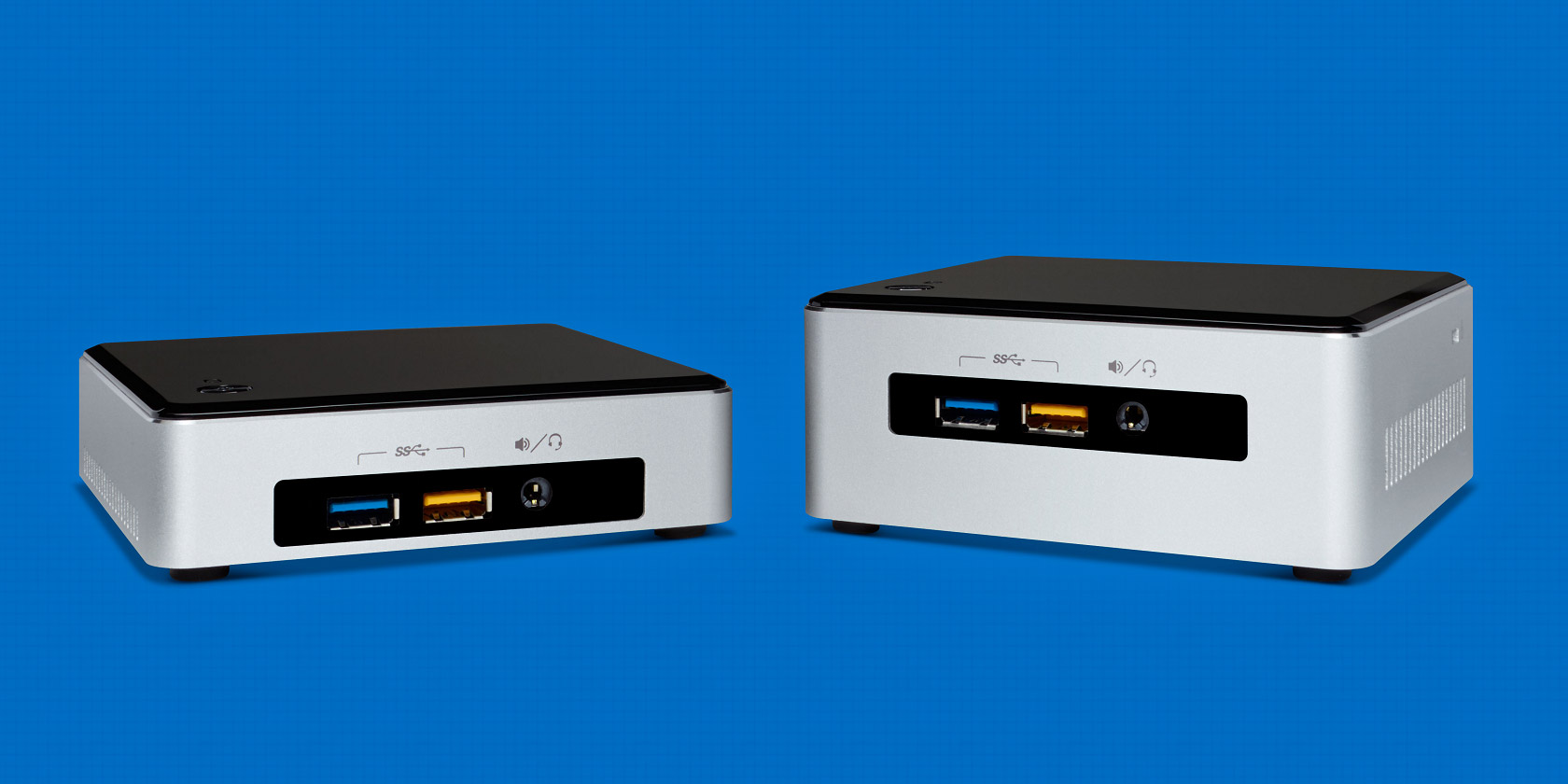
Desktop computers are often large, cumbersome devices. Many people, however, feel this is a reasonable trade-off for the additional performance they offer over a laptop or tablet. However, in recent years, technology has progressed so that desktop PCs can now fit into smaller spaces.
Intel has been the leader in this market, designing compact devices that offer almost the same performance as a larger setup. The company calls these the Next Unit of Computing, or NUC.
Here’s everything you need to know about the Intel NUC.
What Is an Intel NUC?
Before the laptop, desktop computers were huge items that required a dedicated space. They didn’t fit nicely into the home, and a powerful PC was an expensive inconvenience. Laptops, however, made computing portable. You were no longer chained to your desk if you needed to get on the PC.
However, incorporating a screen and battery while still keeping the device comfortable to carry around left little room for performance improvements. This is despite electronics manufacturing abiding by Moore’s Law. This law predicts that the cost of electronics will fall while complexity and capability will increase.
Intel noted this and set about creating a small form factor PC, which became known as the Next Unit of Computing. The first generation of NUC was launched in 2013. The headless computer—one without an integrated display—was designed as a kit PC. The small, usually square, case came equipped with a motherboard, integrated CPU, and power supply.
The remaining components need to be purchased separately, and the specifications are at your discretion. Intel doesn’t include peripherals, either, so you’ll want to consider buying one of the best wireless keyboard and mice combos. The same is also true of your PC’s storage and operating system.
Although you can choose any hard drive that’ll fit your NUC, there is no software included. So, if you intend to install Windows 10, you’ll need your own copy. You don’t need to spend fortunes on this, though, as there are still ways to get Windows 10 for free or cheap.
How Does a NUC Work?

Unlike the Mac mini, which is also a headless computer, the Intel NUC devices allow you to customize your setup. The Mac mini is pre-assembled, so you are only able to buy the machine as Apple offers it. The NUC, however, is more flexible and cost-effective. Depending on what you want to use it for, you could opt for the maximum supported RAM, or the minimum to get by.
Likewise, other components are easily swappable. If budget is a concern, you could use lower specification parts and then upgrade over time as money becomes available. In many ways, the Intel NUC lineup sits somewhere between the Mac mini and the Raspberry Pi. However, NUC devices are more powerful and more expensive than their Raspberry Pi counterparts.
To maximize their space-saving potential, each NUC comes with a VESA mounting bracket so they can be attached to the rear of a monitor or screen. Given the size requirement, NUC computers are often unable to include a dedicated graphics card, relying on integrated graphics instead. However, in early 2020, Intel launched its first NUC with support for a graphics card, the NUC 9 Extreme.
Uses for an Intel NUC

As they are portable, flexible, and generally less expensive than traditional desktop computers, NUCs are the ideal choice for office environments. To create a comfortable workspace, you need to minimize clutter but still provide suitable equipment. Given their small size, they are also well-suited to those who often move around but tend to prefer a desktop setup.
That said, you could also install a bootable operating system on a USB stick, which would achieve a similar result. However, NUCs are far more powerful, especially if you opt for the highest specification components for your setup. These devices aren’t the only compact computers available. They do benefit though from designs that neatly integrate with the included Intel CPUs.
For home users, NUCs make the perfect home theater media center. In combination with software like Plex or Kodi, you can build a great media center PC. As you can customize your device, if you need it to perform more complicated operations, you can increase the memory, attach peripherals, and choose your preferred connectivity and display options.
Intel NUC Alternatives

The modular design of the NUC is relatively unique. However, Intel isn’t the only company to produce compact computers. As we mentioned earlier, Apple also provides the Mac mini, a headless mini PC. Of course, this unit far exceeds the cost of the NUC, and you can’t customize or upgrade it yourself.
However, the pre-assembled device is easy to set up and is an affordable, space-saving alternative to a full-size iMac. There are also more affordable options. The Raspberry Pi is the most popular NUC alternative, but even the latest models won’t be able to achieve the same performance as Intel’s devices.
Despite this, you can still use Kodi to turn your Raspberry Pi into a home media center. If you do need a reasonably powerful device, but want more flexibility, you could build a small PC with the Mini-ITX form factor.
The Right Compact PC for Your Needs
The Intel NUC series was among the first to offer a customizable, modular, upgradable small computer. The mid-range devices provide an affordable alternative to pre-assembled options and let you upgrade your PC whenever it suits your needs. That said, if you’re researching NUCs for use as a home media center, they aren’t your only option.
Plex is one of the most flexible media center apps, allowing you to stream content to pretty much any device. There are hardware requirements, though, if you want to host your own Plex server. So, be sure to check out the best prebuilt, DIY, and NAS solutions for a Plex server before investing in an Intel NUC.
Read the full article: What Is an Intel NUC? What to Know and Why You Might Want One


